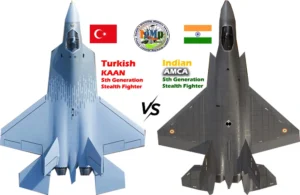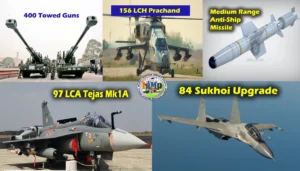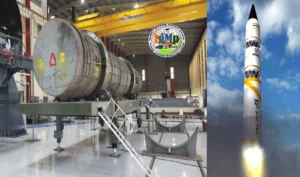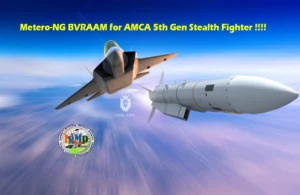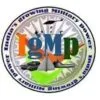The integration of QKD systems with existing communication infrastructure and protocols could prove to be a complex endeavour
In 2016, China launched the world’s first quantum-enabled satellite called Micius. A year later, China completed an over 2,000-kilometre-long optical fibre network for Quantum Key Distribution (QKD) between Beijing and Shanghai.
Not just China, but the US, Germany and a host of other nations are actively investing in quantum technology and related research. India, recognising the potential of quantum technology in modern military applications, has also allocated substantial resources to this area.
“Adopting quantum technologies is not a choice any longer—today, it is a question of getting in at the earliest,” according to Ajay Kumar Sood, principal scientific advisor (PSA) to the Centre. In fact, he noted that in India, QKD link between Sanchar Bhavan and NIC headquarters in Delhi has been live since earlier this year. This enables transmission of data through quantum communications networks over 150-200 kilometres currently, which can be further extended to over 2,000 kilometres in the future.
India’s Quest For Quantum Supremacy
India is forging ahead with the adoption of quantum technology. But the use cases are not just limited to quantum technology. In fact, quantum computers could also play a pivotal role in modernising India’s defence sector. The National Quantum Mission aims to propel India’s quantum endeavours to rival China in the domain of not just quantum computers, but also quantum communication technology.
Earlier this year, the Indian government allocated a budget exceeding INR 6,000 crores to accelerate quantum computing research and construct intermediate quantum computers with 50-1000 qubits within the coming eight years.
Quantum computers could be used by defence planners to conduct large-scale simulations of military deployment. Quantum computing algorithms could be utilised to optimise military logistics, such as route planning, resource allocation, and supply chain management. The ability of quantum computers to handle vast amounts of data and solve complex optimisation problems could enhance military operations.
While the topic of quantum discussion is hot, there are no mature quantum computers in the world yet. “All the quantum computers in the world are in an intermediate state right now. Moreover, quantum computers alone are not used as standalone computers; they are always used in conjunction with a classical computer. Additionally, quantum computers do not address all types of problems; they are specialised for specific sets of issues,” Anshuman Tripathi, member of the National Security Advisory Board (NSAB), told AIM.
A fully mature quantum computer, which can be leveraged for commercial and military use is still far away. “It’s a matter of time. There are still some critical technologies which need to be developed and that will definitely take time,” Tripathi added.
Defence Agencies Bank On Quantum Tech
However, quantum technology, which is a subset of quantum computing, is garnering significant attention, especially from our defence agencies. Last year, the Ministry of Defence (MoD) announced that the Indian army has initiated the process of procurement of QKD systems developed by QNu Labs by issuing a commercial Request For Proposal (RFP) and its deployment.
With support from the Defence Excellence (iDEX), Defence Innovation Organisation (DIO), QNu Labs, a deeptech startup in Bengaluru, has made significant strides in overcoming distance limitations through innovative secure communication via QKD systems.
QKD ensures the creation of an unhackable quantum channel, providing an impervious layer of encryption for safeguarding critical data, voice, and video communications between these distant endpoints. It doesn’t only provide secure communication channels for military operations, but is also used to detect any tampering or eavesdropping attempts during communication. QKD can also be integrated with quantum sensors and surveillance systems to enhance military intelligence gathering capabilities.
Moreover, to spearhead research and innovation in the field of quantum, the Indian Army, with support from the National Security Council Secretariat (NSCS), has also established the Quantum Lab at the Military College of Telecommunication Engineering, Mhow (MCTE).
In fact, the use of quantum technology is not just limited to the Indian army. The Indian Navy is exploring the use of the technology. The Raman Research Institute (RRI), an autonomous institute of the Department of Science and Technology (DST), inked a Memorandum of Understanding (MoU) with the Indian Navy’s R&D unit Weapons and Electronics Systems Engineering Establishment (WESEE) to lead the research efforts towards developing QKD techniques that the Indian Navy could leverage in the nation’s efforts towards securing free space communications.
Quantum Tech Has Its Limitations
However, even though nations are rushing to build their own QKD capabilities, certain questions about the reliability of the technology remain. Interestingly, the National Security Agency (NSA), a key intelligence agency within the US Department of Defense, currently does not endorse the use of QKD for safeguarding communications within national security systems. They also do not plan to certify or approve any QKD or QC security products unless specific limitations are addressed, the NSA said in a blog post.
The limitations, as cited by the NSA, include a lot of technical limitations such as the requirement of special purpose equipment, increased infrastructure costs and insider threat risks, and increased risk of denial of service.
Besides, the integration of QKD systems with existing communication infrastructure and protocols can prove to be a complex endeavour. Additionally, enhancing the cost-effectiveness of QKD technology, encompassing both hardware and maintenance, is crucial for its widespread deployment.
Hence, addressing these challenges requires ongoing research, development, and collaboration among academia, industry, and government entities. Similar to quantum computing, as advancements are made in QKD technology and its associated challenges are overcome, the wider adoption of QKD for secure communication will increase.
https%3A%2F%2Fwww.defencenews.in%2F2023%2F10%2Findian-army-banks-on-quantum-tech-however-challenges-remain%2F


